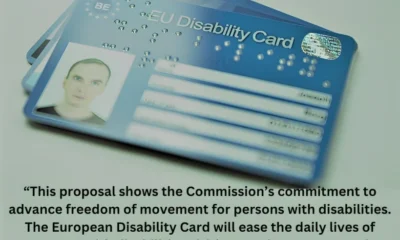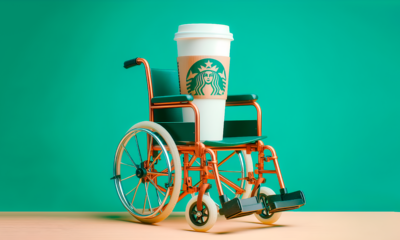Thought and Opinion
Empowering Diversity: Believe in Your Disability Skills and Never Stop Improving

A rich tapestry of abilities exists at the heart of the disability community, which is frequently obscured by societal biases. It’s time to rewrite the story and live by the adage, “Believe in Your Disability Skills, But Never Stop Improving.” This powerful concept encompasses the essence of community empowerment and growth.
Believing in your disability skills means recognizing the unique qualities that each person brings to the table. It’s a celebration of diversity, recognizing that abilities come in a variety of shapes and sizes. These abilities, whether perseverance, adaptation or a distinct perspective, are the foundations of self-empowerment.
The journey, however, does not end with belief; it thrives on continuous improvement. Every member of the handicapped community can grow, learn, and improve their skills. This dedication to personal development catalyzes breaking down boundaries and transforming perceptions.
Embracing improvement entails cultivating a lifelong learning mentality. Look for educational opportunities, mentorship, and ways to improve your skills. By doing so, we not only validate our existing abilities but also lay the path for a future in which the disability community is recognized for its dynamic and ever-expanding skill set.
Let us champion the cause in the spirit of unity and progress: Believe in Your Disability Skills, But Never Stop Improving. It’s a rallying cry for the disability community’s empowerment, diversity, and relentless pursuit of greatness.
By- Rowland Obiosah
Featured
EU’s New Disability Cards Ease Cross-Border Travel for Individuals with Disabilities
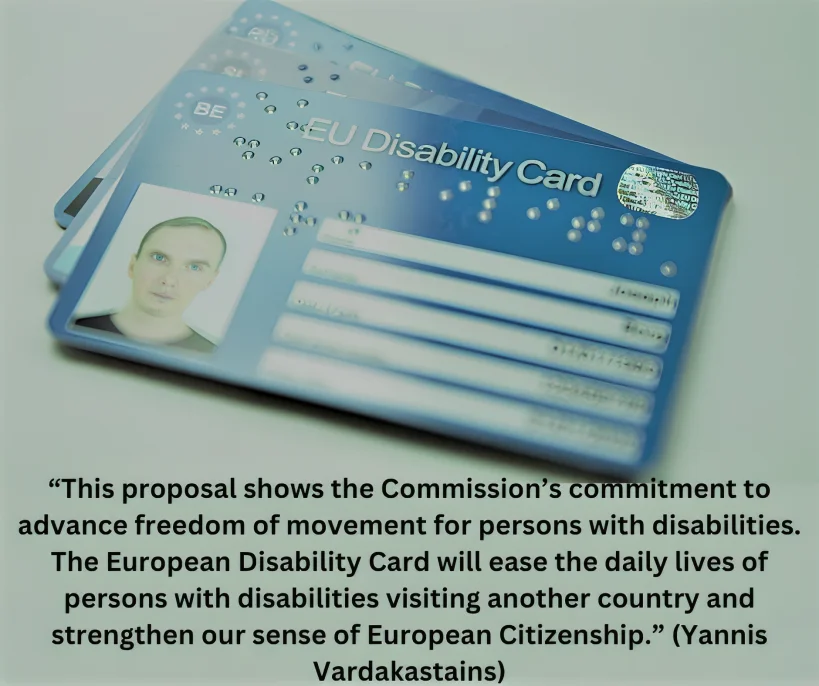
The EU disability card is a recent effort from the European Union, which has a long history of upholding inclusion and human rights. This card, which is intended to empower people with disabilities, is poised to transform cross-border travel for people with disabilities and guarantee that everyone can enjoy the richness and beauty of Europe.
Comprehending The European Union Disability Card
The EU disability card, a ground-breaking instrument that provides a plethora of advantages to its holders, is at the center of the EU’s inclusion initiatives. This card gives you priority access to transportation, tourist attractions, and cultural institutions throughout all member states, making it the key to seamless travel experiences.
The EU Disability Card’s Advantages
The advantages of having an EU Disability card are numerous, ranging from useful features like lowered admission costs to necessities like help and support. It’s a daring step toward equality, making sure that a disability doesn’t take away from the excitement of discovery.
Qualifications And Application Procedure
The comprehensive qualifying requirements for the EU disability card are made to accommodate a wide range of disabilities. The EU’s commitment to accessibility is shown in the application process for the disability card, which is a simple process that allows all qualified individuals to enjoy travel freedoms.
Improving Cross-Border Mobility For Person With Disabilities
The creation of the EU disability card is a shining example of advancement for disabled people traveling inside the EU. It removes administrative and physical obstacles to create a travel experience that is easy and dignified.
Accessibility And Disability Rights In The EU
The EU disability card is a bold assertion of disability rights in the EU, not just a tool for easier travel. It transforms the long-advocated EU principles of the United Nations Convention on the Rights of Persons with Disabilities into concrete travel benefits.
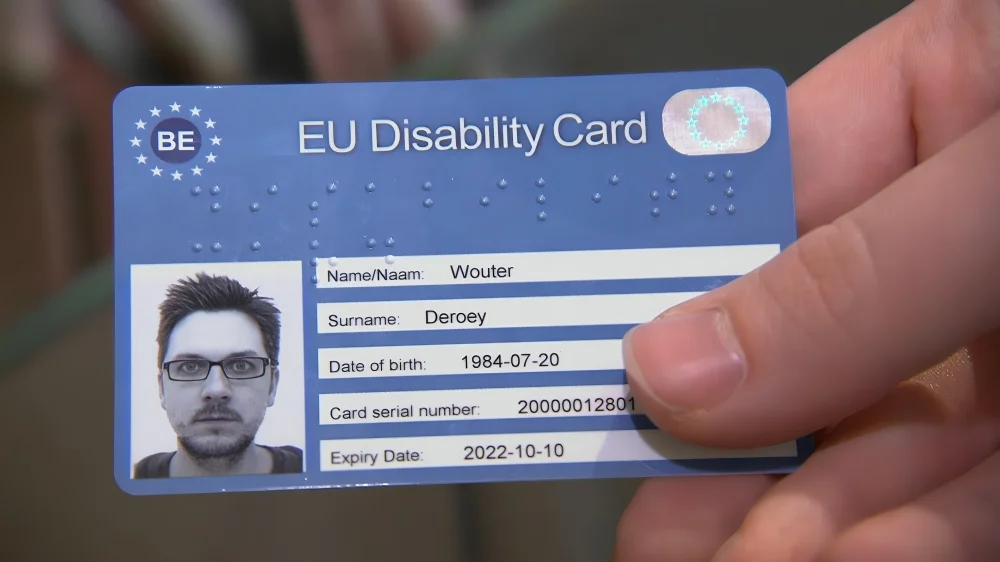
The Effect On Accessible Tourism In The EU
The EU disability card has significant knock-on effects for accessible travel inside the EU. It serves as a catalyst for change, forcing the travel and tourist sector to reconsider and improve its accessibility features. This not only improves the vacation experience for those with disabilities but also points to a change in the tourist industry toward greater inclusivity.
A Heritage Of Liberty And Inclusivity
The EU’s new disability card is a symbol of inclusivity and the strength of group will, as well as a significant advancement in accessibility. It is a major win for disability rights in the EU and a sign of the solidarity of the European people in recognizing that freedom and mobility are rights that everyone has, not just some.
This card has the power to change lives in addition to making cross-border travel easier for people with disabilities. It’s a promise of a more inclusive future, a bridge between cultures, and a gateway to new experiences. Around the world, the EU is spreading a message of opportunity and hope as it leads the way in accessible tourism.
The perks of travel are not the only things that the EU disability card has to offer. It is a force for transformation, prompting businesses, authorities, and communities to reconsider their stance on diversity. The card pushes us to stretch our imaginations and see a society in which everyone, regardless of ability, can easily and dignifiedly discover the wealth of our diverse continent.
As we commemorate the introduction of the EU disability card, we also anticipate the tales of trips undertaken, obstacles overcome, and opportunities gained. This card is more than just a piece of plastic; it represents a Europe that appreciates each and every one of its citizens and welcomes them all.
The smiles on people’s faces, the experiences it makes possible, and the conversations it sparks about the value of accessibility in all facets of life will ultimately be the real indicators of the success of the EU disability card. It’s a step toward a future in which being “disabled” doesn’t imply limitations but rather a new perspective on the wonders that surround us.
The EU disability card serves as a beacon of progress and a timely reminder that, when we band together for the greater good, we can make the world a more prosperous, compassionate, and inclusive place for all.
Obiosah Rowland
Culture
Five Most Celebrated disabled Artists across the World

The world often celebrates success, but true inspiration often lies in overcoming adversity. These five individuals, all prominent figures in their respective fields, have defied limitations imposed by disability, proving that the human spirit can soar regardless of any challenges they confront in life.
Their stories not only amplify the achievements of disabled artists, but also highlight the unique talents of disabled artists and their profound impact across the human race.
Sudha Chandran
Although a devastating car accident at 16 claimed Sudha’s leg, yet she refused to let it define her. With unwavering determination, Sudha relearned to dance, this time with a prosthetic limb. Her portrayal of her own life in the film “Mayuri” earned her national recognition, and her career blossomed. Today, Sudha is a celebrated actress, dancer, and reality TV star, inspiring millions with her grace and perseverance. Her journey, a part of the school curriculum in India, serves as a beacon of hope, not just in her home country, but across the globe, solidifying her place among famous disabled artists worldwide.
Aaron Fotheringham
Forget conventional skate parks. Aaron Fotheringham, better known as “Wheelz,” rewrites the rules on a specially designed wheelchair. Born with Spina Bifida, Aaron never let his disability clip his wings. From a young age, he embraced challenges, mastering walkers and crutches before conquering skate ramps at eight. Fearless and innovative, Aaron became a pioneer in Wheelchair Motocross (WCMX), pushing the boundaries of the sport with groundbreaking tricks like backflips and one-wheeled spins. His dedication has earned him not just recognition, but a place among the most influential figures in extreme sports.
Daniel Radcliffe
While the world met him as the bespectacled wizard, Harry Potter, Daniel Radcliffe’s journey is more complex. Diagnosed with dyspraxia, a learning disability affecting coordination, Daniel faced challenges in everyday tasks. Yet, acting proved to be his saving grace. Encouraged by his mother at the age of nine, he landed the iconic role that propelled him to global stardom.
Despite the demands of fame, Daniel excelled in his studies and transitioned seamlessly into a diverse acting career, tackling challenging roles on stage and screen. Openly discussing his dyspraxia, he raises awareness for neurological conditions and inspires others to embrace their differences. Now a father, Daniel thrives on a new chapter, demonstrating that success extends far beyond the world of make-believe.
Nick Vujicic
Nick Vujicic’s story is one of overcoming seemingly insurmountable odds. Born with tetra-amelia syndrome, an extremely rare condition that results in the absence of limbs, Nick endured a childhood filled with hardship and isolation. However, his spirit remained unbroken. Nick discovered his passion for motivational speaking, sharing his story of resilience and self-acceptance with audiences worldwide. As the founder of “Life Without Limbs,” he empowers people with disabilities and inspires them to lead fulfilling lives.
Frida Kahlo
Frida Kahlo, the iconic Mexican painter, battled health issues throughout her life. Diagnosed with Polio as a child left her with lasting physical limitations, and a horrific bus accident in her youth caused severe injuries, including a broken spine. It was during her recovery that Frida turned to art, channeling her pain and experiences into self-portraits that became her signature style.
However, Frida’s work explored themes of identity, suffering, and the female experience. Though she died young, her artwork continues to resonate with audiences today, securing her place among celebrated disabled artists. Beyond her artistic genius, Frida’s defiance of societal norms has made her a celebrated figure within the LGBT community.
These five individuals stand as powerful examples of human potential. They have redefined success, proving that disability is not a barrier to achievement. Their stories inspire us to embrace challenges, celebrate differences, and pursue our dreams with unwavering determination.
These inspiring stories highlight the need for greater global recognition of disabled artists, breaking down barriers and ensuring a more inclusive art industry where disability in the art industry is not a hindrance, but a source of immense creative power.
By Yahuza Bawage


Entertainment
Parents Aid Intellectually Disabled in College Degrees
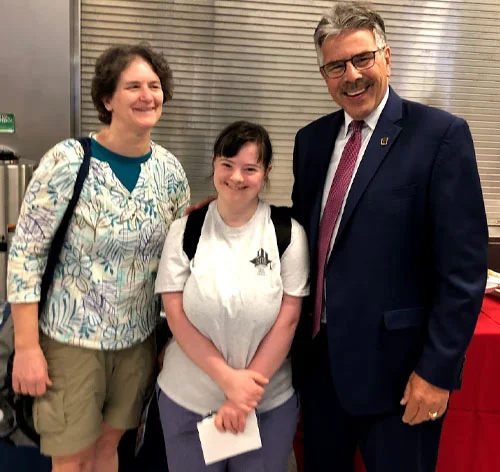
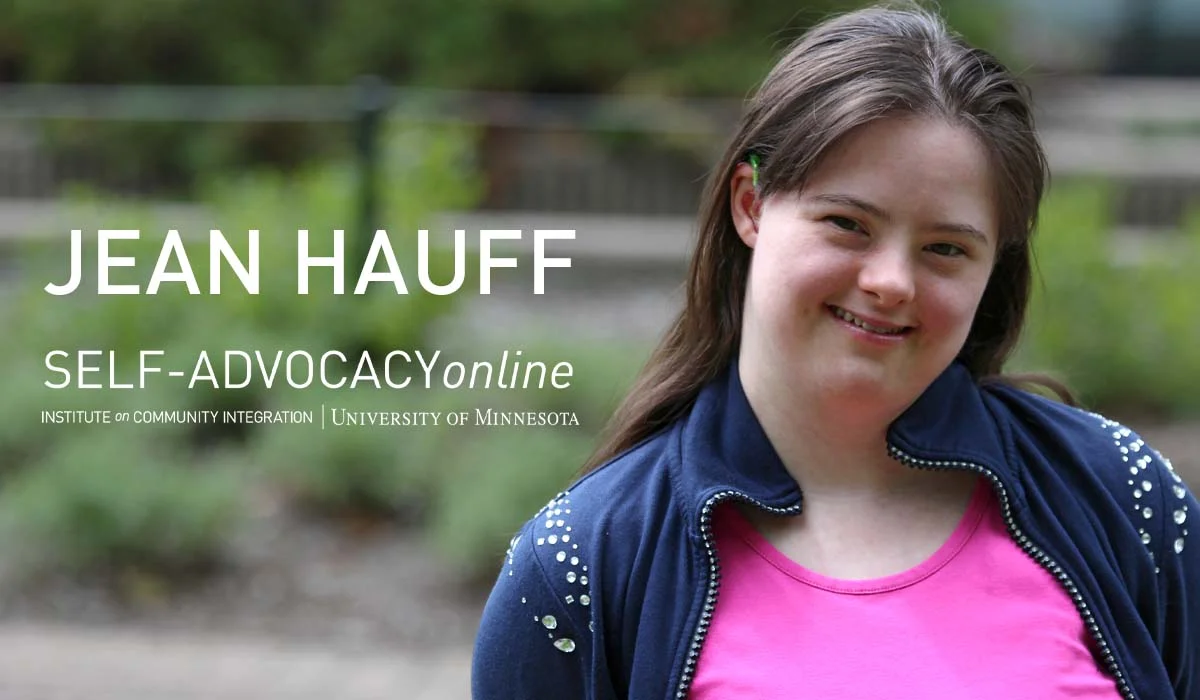
In her home state of Minnesota, the dream of college seemed out of reach for Jean Hauff, a young woman with Down syndrome. She wanted to pursue a career in mass media, but no Minnesota school offered the intellectual disabilities college programs or specific support services she craved.
Jean faced this troubling reality because Minnesota lacked a system that embraced students with disabilities (ID) within mainstream higher education. Existing programs were limited, offering neither the desired fields of study nor the promise of a fulfilling college experience. This situation caused worry for Mary Hauff, Jean’s mother, who since Jean’s birth has been a champion of inclusive education.
This frustration fueled the creation of the Minnesota Inclusive Higher Education Consortium in 2019. This powerful coalition, composed of parents and disabilities advocates, embarked on a mission to transform the higher education landscape for students like Jean.
The efforts of this coalition made a significant turning point in 2023 as the Minnesota Legislature began to recognize the potential and the right of intellectually disabled students. A significant $2 million was allocated for a period of two years to promote inclusive higher education in the region. This brought smiles to parents whose children struggle with ID, highlighting the importance of parental aid degrees.
The vision is clear: students with ID deserve the same opportunities as their peers – the same range of study options, enriching campus experiences, and the chance to earn meaningful credentials. Experts believe that a substantial portion of the allocated funds will directly empower colleges to develop innovative methods to attract and support students with ID, providing much-needed college degrees assistance.
Another crucial aspect of this initiative is the creation of a technical assistance center, funded with $500,000 and housed at the University of Minnesota. This center serves as a central hub for expertise, offering best practices on providing inclusive postsecondary education. Students with ID themselves have a significant voice in shaping this center’s direction, with half the members of its advisory committee coming from this very community.
A past attempt at attending a technical college left Dupree Edwards, a Minnesotan with ID, feeling unsupported and ultimately led him to abandon his pursuit. However, Edwards thrives when given accessible learning materials and a structured environment that caters to his learning pace. The news of the legislation was met with immense joy by Edwards, who aspires to pursue formal studies in performing arts – a dream that now seems achievable thanks to increased disabilities support college.
The Higher Education Opportunity Act of 2008 also laid the groundwork for increased college access for students with ID nationwide. Today, Minnesota joins states like Kentucky, which established a similar technical assistance center in 2020, witnessing a subsequent doubling of college opportunities and disabilities within the state.
Also, institutions can apply for grants of up to $200,000 per year for four years, empowering them to develop or strengthen their capacity to support students with ID. This highlights the importance of inclusive education.
For Jean Hauff, whose college journey took her outside Minnesota due to a lack of suitable options, this initiative holds immense significance. Despite a positive experience at Duquesne University’s pilot program for students with ID, she eventually had to transfer due to program changes.
Now, with this renewed hope, Jean aspires to pursue her education and career goals within her home state.
While this groundbreaking investment serves as a beacon of hope for students with ID in Minnesota, many students like Jean feel that with the help of parents and disabilities advocates, it’s possible to go to college and become whatever they dreamed to be.
Written by Yahuza Bawage

